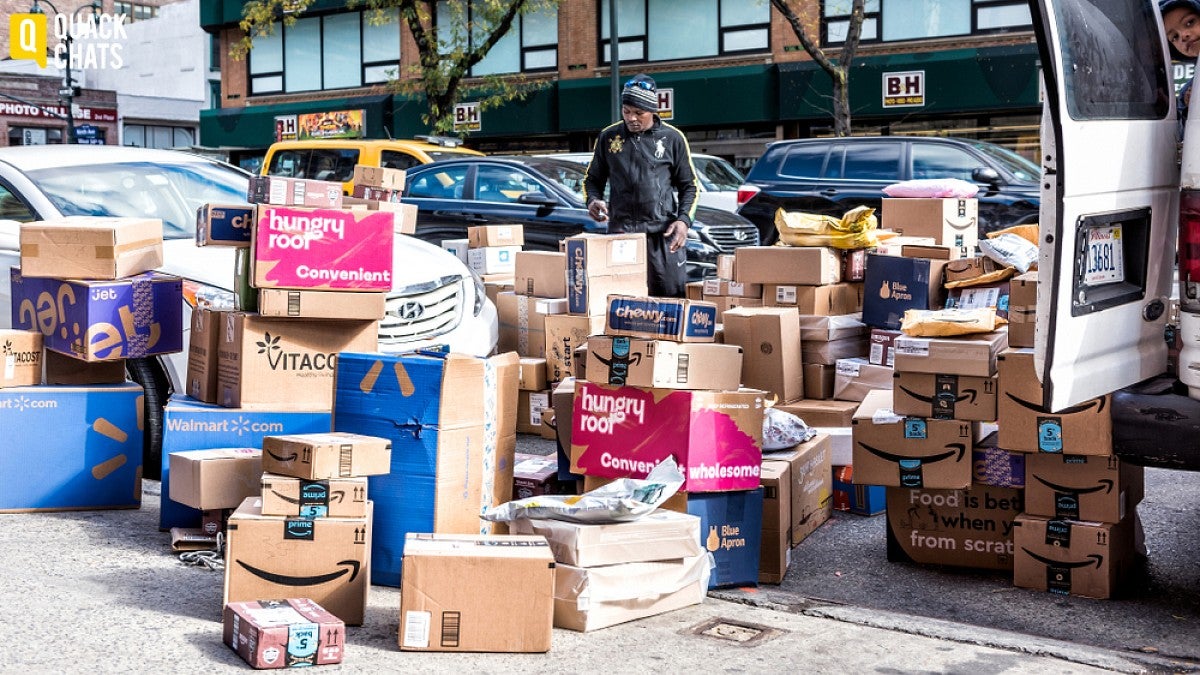The continued maturation of the e-commerce market is fueling significant growth in warehousing, changing the nature of brick-and-mortar retail and creating a surge in parcel volumes, which means deliveries are up.
Way up.
In New York City, for instance, 1.5 million packages are delivered daily, according to a recent New York Times report. So, the question being posed is what lengths are companies willing to go to ensure their products reach consumers in the most efficient, expedient and cost-effective way.
In a Feb. 19 Quack Chats pub talk, “Your Order Has Shipped: Exploring the Impacts of E-Commerce on Cities,” Urbanism Next project manager Amanda Howell will delve into her research on how emerging technologies are aiding the merging of e-commerce and the autonomous delivery industry.
The Urbanism Next Center, launched in 2017, is a part of the Sustainable Cities Institute at the University of Oregon.
“The Urbanism Next framework organizes impacts based on five key areas — land use, urban design, building design, transportation and real estate — and relates those to the implications they have on equity, health and safety, the environment, and the economy,” said Howell. “It then considers what we should do to ensure that emerging technologies help communities achieve their goals.”
By 2018, e-commerce represented 11.2 percent of total retail sales in the United States, a 10.4 increase from the first quarter in 2000. The Pitney Bowes Parcel Shipping Index estimates the global shipping volume is likely to reach 100 billion later this year.
According to the Mastercard SpendingPulse report, which details holiday shopping in 2019 from Nov. 1 through Dec. 24, online shopping sales made up 14.6 percent of total retail spending in 2019, an 18.8 percent increase this holiday season compared to 2018. Cyber Monday accounted for 24.5 percent of all holiday season shopping.
With the meteoric rise of e-commerce and the growing demands levied on corporations by consumers to supply goods at maximum efficiency, Howell, along with her colleagues at the Portland-based research consortium, is building shared understandings of the effects of emerging technologies.
“We are at a critical moment in time right now with the looming threat of climate change, the national housing crisis and growing inequality, among other issues,” Howell said. “Whether or not emerging technologies help to mitigate these issues or exacerbate them largely depends on how they are implemented, which is why it is so important for us to be thinking about them now.”
This month, Urbanism Next, in partnership with NUMO Alliance, launched The Nexus, a comprehensive information source that explores the potential effects of innovations such as new mobility, autonomous vehicles and the rise of e-commerce.
“When faced with the challenges and opportunities that these new technologies pose, The NEXUS helps cities and decision-makers understand how to frame conversations and provides a trustworthy, fact-based platform to gather all of the information they need to tackle these issues,” said UO professor and Urbanism Next director Nico Larco.
This one-stop, online resource provides a toolkit to approach important topics and assists decision-makers and government leaders with information to create new policies to manage and regulate those emerging trends.
The Feb. 19 talk begins at 6 p.m. at the Ax Billy Grill at the Downtown Athletic Club, 999 Willamette St., in Eugene. Admission is free and questions are encouraged. Food and drinks will be available for purchase.
More Quack Chats pub talks are being scheduled for 2020. Follow Around the O for information on upcoming talks on gender and the gaming industry and biological symmetry.
—By Christopher Jones, Strategic Initiatives


